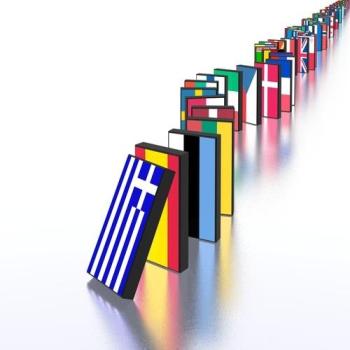
Governments and corporations try to appease latter-day socialists who bizarrely seek the destruction of the very system that is best for the poor.
Since the end of the 1970s, free-market capitalism has been in and socialism has been out. Privatization, deregulation and open trade are now cutting-edge policies in most countries. The trend, however, is too much for the suffering socialists. They are biting back. Violent anticapitalist protests have been de rigueur lately at international summit meetings, as witness the shenanigans that bedeviled the recent European Union conclave in Sweden.
The political backlash against capitalism is pushed by a loosely connected collection of 40,000 outfits that are euphemistically called nongovernmental organizations (FORBES, Nov. 27, 2000). Okay, the bulk of them say they have nothing to do with fomenting violence. But the larger point is that these NGOs are spewing out nonsensical views that would harm the poor who they claim to champion. Worse, NGOs are often underwritten by the very governments and corporations they self-righteously vilify.
Some of this appeasement money comes from Washington. The World Resources Institute, for instance, gets funds from the Interior and Agriculture departments and the Environmental Protection Agency. Canada’s government provides almost half the funding for the International Institute for Sustainable Development. Uncle Sam kicked in $138,000 to this bunch through its fiscal year ended in March 2001. Don’t go looking for detailed financial statements on most NGOs, though; they range from skimpy to nonexistent.
Then there’s the absurd roster of multinational businesses that have climbed in bed with the NGOs. To Sir John Browne, group chief executive of BP Amoco, “Business cannot afford to fall into the trap of seeing NGOs as automatic enemies.” Perhaps it’s no coincidence that his company has massively underperformed the S&P Oil Composite index since oil prices shot up in 1999. Sir John’s soothing words about the NGOs recall General Douglas MacArthur’s oneword definition of defensive warfare: “Defeat.”
Royal Dutch/Shell is another huge corporation seeking to appease the NGOs. The oil giant released a report in February boosting what’s called “sustainable development”—in other words, the kind that’s supposedly sensitive to the environment and society at large, as determined by the NGOs. The company credits three NGOs, including Business for Social Responsibility, with helping draft the report.
The great NGO game is laid bare in David Henderson’s most recent book, Misguided Virtue: False Notions of Corporate Social Responsibility, published by the Institute for Economic Affairs in London. Henderson, former chief economist at the Organization for Economic Cooperation & Development in Paris, documents how uncompromising the NGOs are: Most of them will be satisfied with nothing less than an outright repudiation of the capitalist system.
A hallmark of the protesters’ propaganda campaigns is that growth does little for the poor. According to Jeffrey Gates, head of a Laguna Beach, Calif.-based NGO called the Shared Capitalism Institute, “Capitalism does not raise all boats; it raises all yachts.”
Not so. David Dollar and Aart Kraay of the World Bank have examined the growth-poverty nexus, looking at four decades of data from 80 countries, both developed and developing. They discovered that growth generated by freemarket capitalism indeed helps the poor, raising their incomes as much as it raises those of the nonpoor. In fact, Dollar and Kraay found that most procapitalist policies—such as open trade and the rule of law—systematically affected all segments of the population positively and proportionately.
And they found that two such policies favor the poor more than the rich. One is reducing inflation. This finding confirms what survey data have always shown: The poor fear inflation much more than do the rich, who have many more resources to protect themselves from its ravages.
The second policy is reduction of public spending. At first glance this is surprising, because public spending programs are often peddled as beneficial to the poor. Turns out that the rich are much better placed to feed at the public trough. The poor get crumbs. The leaders of business and government should wake up to what NGOs really are all about— and stop subsidizing them.
Author Steve H. Hanke

0 responses on "Kowtowing to Capitalism’s Enemies"